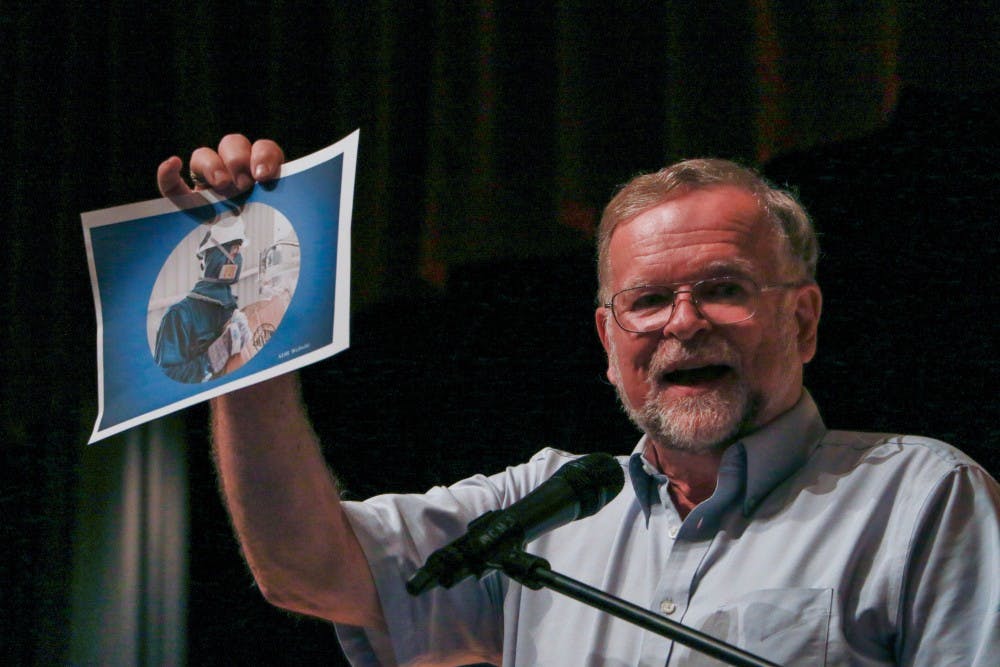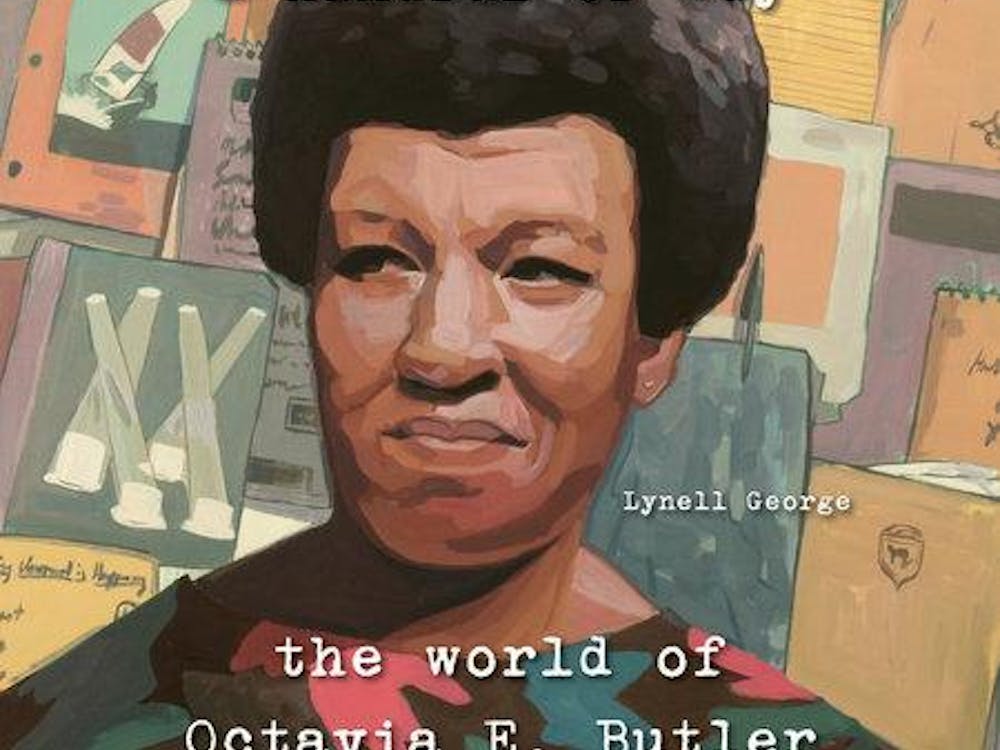Vocal opposition from the Ball State and Muncie communities concerned over health and environmental factors was one of the reasons behind stopping a steel-dust recycling plant from setting shop in town.
“Thank you very much for doing this. Thank you for everything all of you have done. I’ve been doing this for many many years since I’ve been here in Muncie. I’ve never seen an outpouring such as this. You are amazing. You are the heroes of Muncie to do what you have done,” James Rybarczyk, associate professor of chemistry, said at an informational panel meeting Tuesday at the auditorium in Muncie Central High School.
Waelz Sustainable Products LLP (WSP) ceased efforts to develop a plant after discussions with the City of Muncie Redevelopment Commission (MRC) and City of Muncie, according to a press release Tuesday.
The project failed to win the confidence of the community and eventually, WSP, MRC and Mayor Dennis Tyler decided any further efforts to do so “were in vain.”
Opposition to the plant:
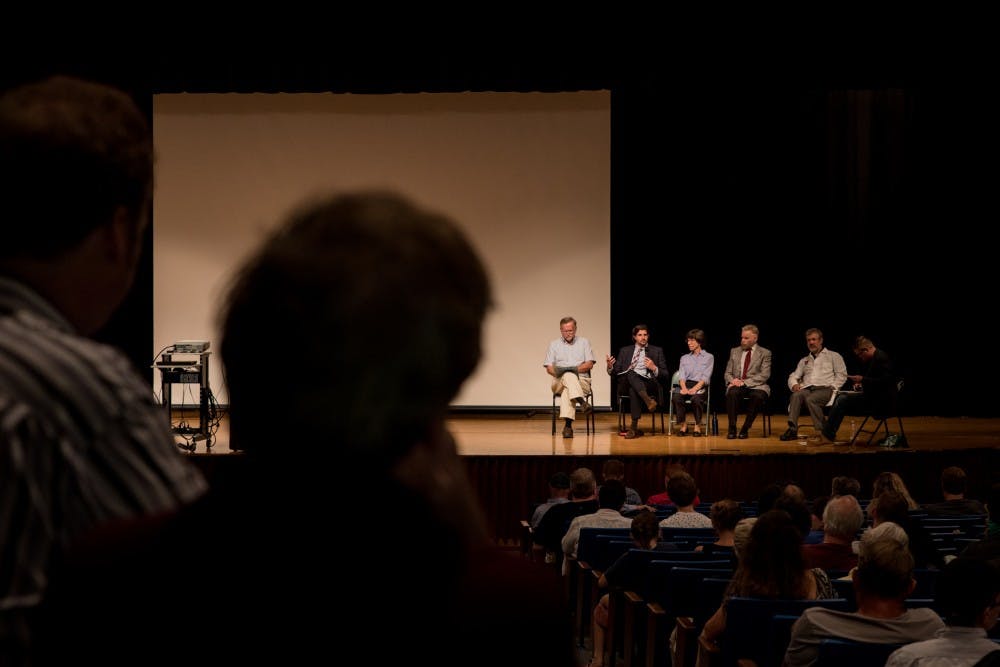
Community members have a question and answer session in Muncie Central High School Aug. 20, 2019, after the death of the Waelz Sustainable Products Manufacturing Complex. After years of job loss in Muncie, Ind. WSP would start to bring jobs back to the city by building on the old BorgWarner location however, the emission levels would have been harmful for those who lived there. Eric Pritchett, DN
“I’ve lived here for 38 years, I’m soon to be starting a family and I will not live here,” said Travis Drown, Muncie resident and Ball State alumnus. “I will move away if it’s a threat to have mercury and extra lead for child development.”
The WSP plant would have reused iron dust from steel mills to create zinc oxide, and could create over 100,000 pounds of zinc oxide annually.
However, Elsayed Zahran, environmental chemistry professor, said if environmental regulations were not followed, the byproducts of this process could result in the exposure of mercury, cadmium, lead and other heavy metals in the atmosphere, soil and water of Delaware County.
Zahran also said if proper filtration wasn’t used in the plant’s emissions, it could result in mercury entering the environment in several different forms, including metallic mercury, as a fine particulate that could be inhaled, and as the toxic organic compound methylmercury.
With proper filtration, Zahran said, other particulates like iron dust could enter the air via the transportation of the material on the plant’s trucks.
Environmental and health concerns also led Bruce Frankel, professor of urban planning, to say the evidence was against the construction of the plant.
Frankel said “anything above zero” when it comes to toxic material exposure in the environment was “intolerable” and that even with proper filtering and environmental precautions, “nothing is foolproof.”
He said companies like WSP could just as easily pay the fines for polluting the environment, which he called “modest,” saying it would be “less than one hundred thousand dollars,” in comparison to the cost of working on more expensive depolluting measures.
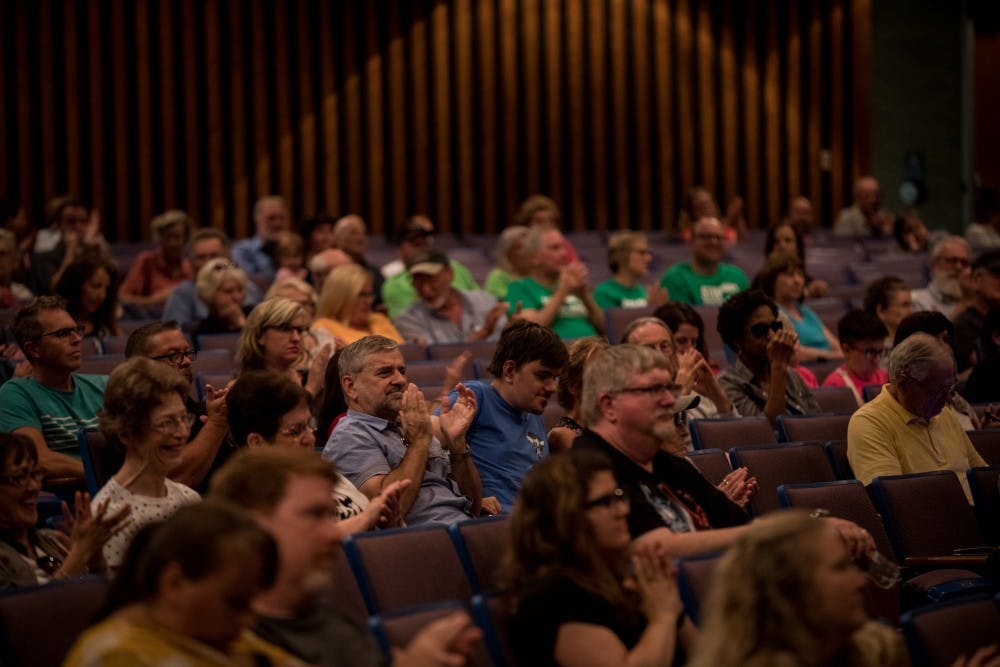
Community members cheer in a hearing after the Waelz Sustainable Products LLP was prevented from building in Muncie Aug. 20, 2019. There was a unanimous decision for WSP to build in the community, but a large reaction from the community lead to the plans end. Eric Pritchett, DN
Pamela Schaal, Yorktown, Indiana, resident and professor of political science, said the environmental aspect of the plant had been downplayed.
“I think it was proposed in a way that was ‘economic development, very beneficial for Muncie,’” Schaal said. “I don’t feel like we had enough input from the damaging effects these emissions can produce.”
John West, assistant professor of urban planning, was one of six panelists speaking at a community meeting Tuesday night at the Muncie Central High School auditorium following the announcement from MRC.
“If you’re building polluting industries in a community and you drive away all the people who potentially live there, you’re not going to get into economic development,” West said.
Josh Arthur was among the six panelists and a key person in bringing to attention the potential dangers of the WSP plant.
Arthur said he originally got involved when some of his friends messaged him concerned over “some unanswered questions” about the development of the plant.
He said that through the process of learning the legal side of implementing a plant, the people involved are more prepared for the “next season” as he says, referring to the next time questionable development may take place in Muncie.
“I feel relieved. Our community has had a couple of losses in a row with the community wanting one thing by and large and government officials doing the other, and we’ve had a couple issues recently like that,” Arthur said. “It’s good to get a victory and know that the times are changing.”

An anti- Waelz Sustainable Products (WSP) sign sits in the yard of Travis Drown, a Muncie resident and Ball State alumnus who opposes the construction of the plant. John Lynch, DN.
In defense of the plant:
Indianapolis-based Heritage Environmental and Mexico-based Zinc Nacional planned to invest $75 million in the construction of the plant — a kiln facility that produced zinc oxide from steel mill byproducts, which would later be used in consumer products such as rubber and ceramics, according to the Heritage Environmental website.
When completed, the plant would have created 90 new jobs and an additional 210 new jobs after further redevelopment, in a press release by Heritage Environmental.
The positive of the industry, Zahran said, was that the steel dust being processed at the plant would have created new uses for excess materials from the steel mill industry.
Nigel Morrison, director of WSP, in the press release, said his organization “made every effort” to have a meaningful dialogue with community leaders and address concerns.
“Unfortunately a campaign of misinformation tainted the process and ultimately made it impossible for the city council to continue supporting the project,” Morrison said.
He goes on to say, in agreement with the City of Muncie and MRC, they have decided to “move on from Muncie.”
Todd Donati, director of MRC, said in the press release, this investment would have “revitalized a decade-old eye sore” apart from addressing environmental issues and generating jobs.
“I worked with WSP and its partners for more than a year and at no time, including now, did I feel that they would produce any product that would be dangerous to our community or environment,” Donati said.
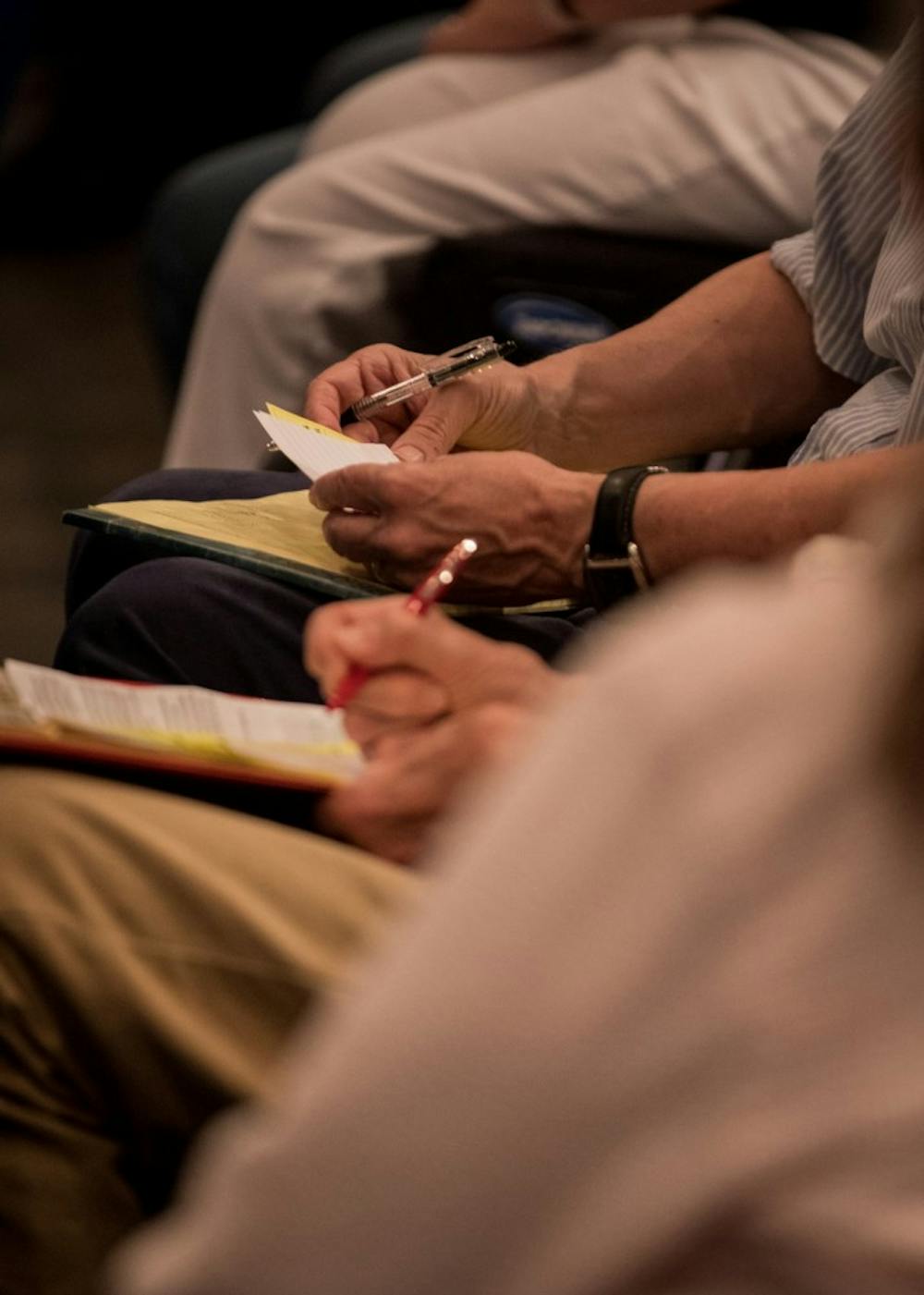
Community members take notes and write questions in Muncie Central High School Aug. 20, 2019 for a hearing about the cancellation of the plans for the Waelz Sustainable Products Manufacturing Complex. There was a unanimous decision for WSP to build in the community, but a large reaction from the community lead to the plans end. Eric Pritchett, DN
The future:
MRC will purchase the former 85-acre BorgWarner brownfield site and any economic development agreements with WSP related to the project have been “mutually ... voided.”
MRC and Tyler will continue marketing the site while working on “the current visual image of the City of Muncie’ Western Gateway,” MRC’s press release states.
Eduardo Alverde, CEO of Zinc Nacional, said in Heritage Environmental’s press release that while WSP was “disappointed” in not being able to open the plant they “remain committed” to the demand for facilities to recycle industrial byproducts and produce zinc oxide for use in consumer products.
The release states several other municipalities were interested in becoming the future site of the proposed plant and have reached out to WSP to initiate discussions, which it said were underway.
Contact John Lynch with comments at jplynch@bsu.edu or on Twitter @WritesLynch. Contact Charles Melton with comments at cwmelton@bsu.edu or on Twitter @Cmelton144.

